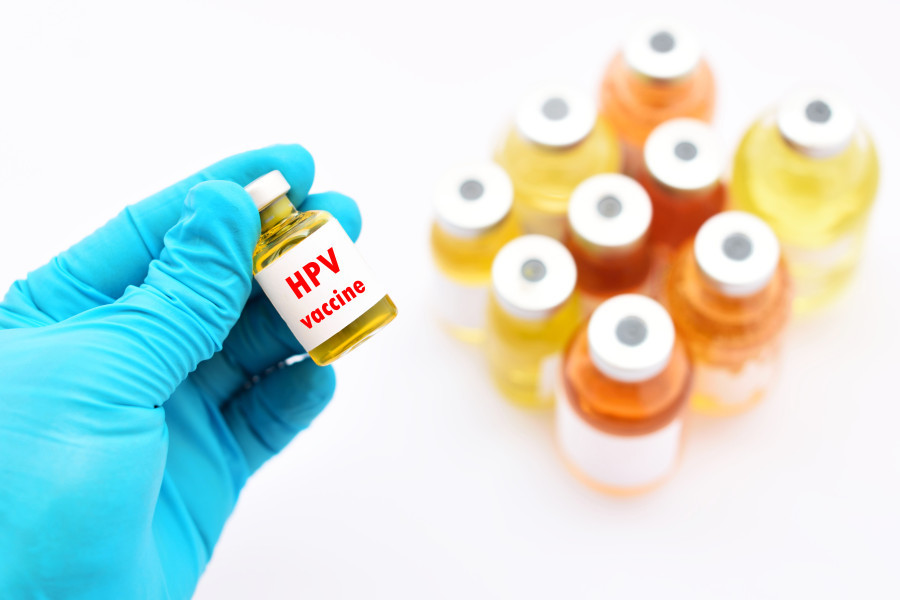Health
Government providing second dose of HPV vaccine in March
Over 9,900 girls aged 14 and 15 years were given the first doses of human papillomavirus vaccine last September.
Post Report
The Ministry of Health and Population will administer the second dose of the human papillomavirus (HPV) vaccine in March to girls who got the first dose earlier.
With the 20,000 doses purchased by the government, 9,980 girls between 14 and 15 years old from all seven provinces were jabbed in September under the demonstration programme.
Dr Abhiyan Gautam, chief of the Immunisation Section of the Family Welfare Division under the Department of Health Services, said that the vaccine will be administered from the same places where the first dose was available.
Human papillomavirus is a viral infection that spreads through skin contact. The virus causes cervical cancer, which is the second-most common cancer in the developing world and a major cause of death among Nepali women. Hundreds of women get diagnosed with cervical cancer every year in Nepal.
According to the BP Koirala Memorial Cancer Hospital in Bharatpur, more than 700 women suffering from cervical cancer seek treatment at the hospital every year.
HPV vaccination was also mentioned in the government’s policies and programmes for the fiscal year 2023-2024.
Doctors say most cervical cancers are associated with the HPV, a sexually transmitted infection. Widespread immunisation could reduce the impact of cervical cancer and other cancers caused by the HPV worldwide.
Countries like Bhutan, Sri Lanka, Thailand and the Maldives have introduced HPV vaccines nationally while India and Indonesia have introduced them in some districts.
In 2016, Nepal piloted HPV vaccines in Chitwan and Kaski districts. All girls aged 11 to 13 years were then given two doses of the vaccine.
Experts say early treatment prevents up to 80 percent of cervical cancer.
Meanwhile, health ministry officials said that a nationwide HPV vaccination drive is likely in the third quarter of 2024. The ministry plans to inoculate around 1.7 million girls between 10 and 14 years with HPV vaccines in the nationwide drive and make it a part of regular immunisation.
According to officials, the Global Alliance for Vaccine and Immunisation (GAVI) has agreed to provide the vaccine doses. They said that once the campaign is completed, the HPV vaccine will be included in the government’s routine immunisation programme.
Nepal had submitted a proposal to GAVI in July last year requesting it for
the HPV doses for free so that the vaccine could be included on the regular immunisation list.
The World Health Organisation says HPV vaccination is recommended as part of a coordinated strategy to prevent cervical cancer and other diseases caused by the virus.



 8.95°C Kathmandu
8.95°C Kathmandu














